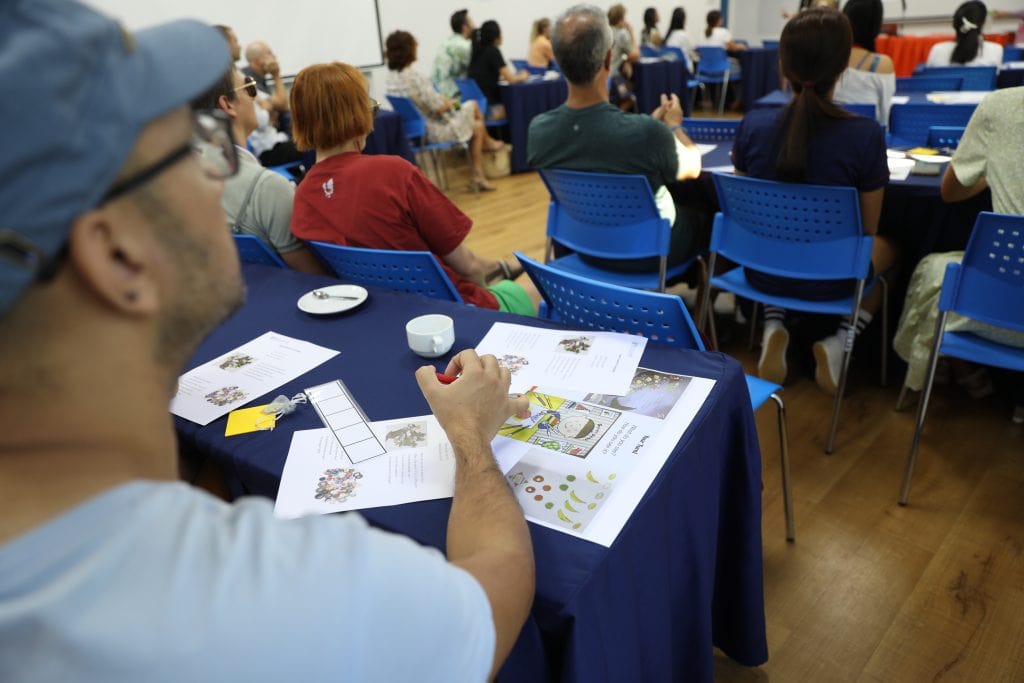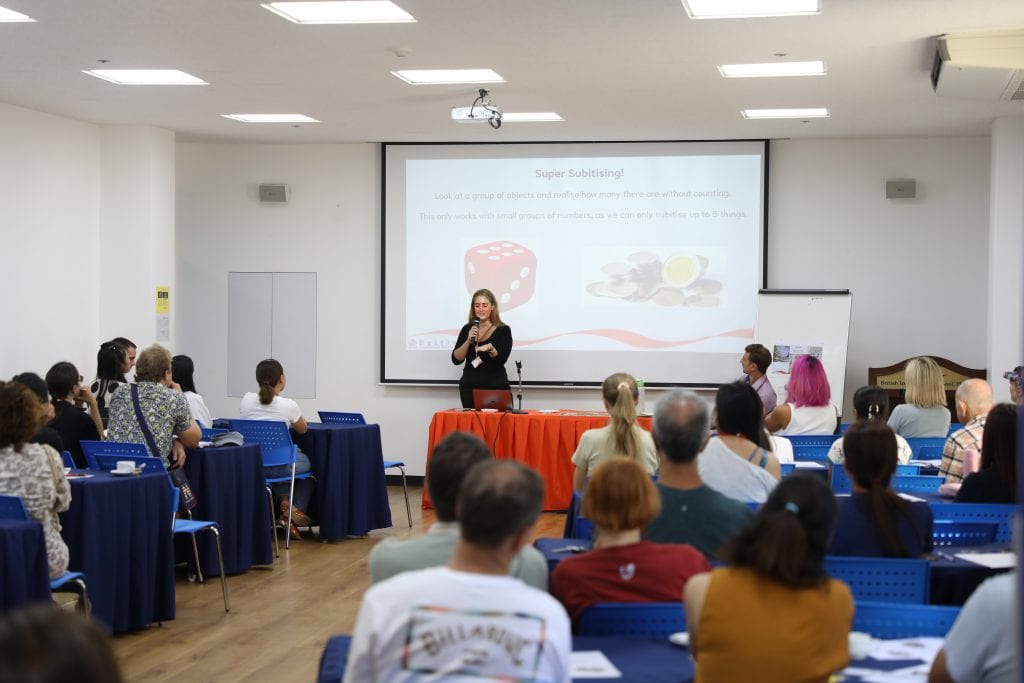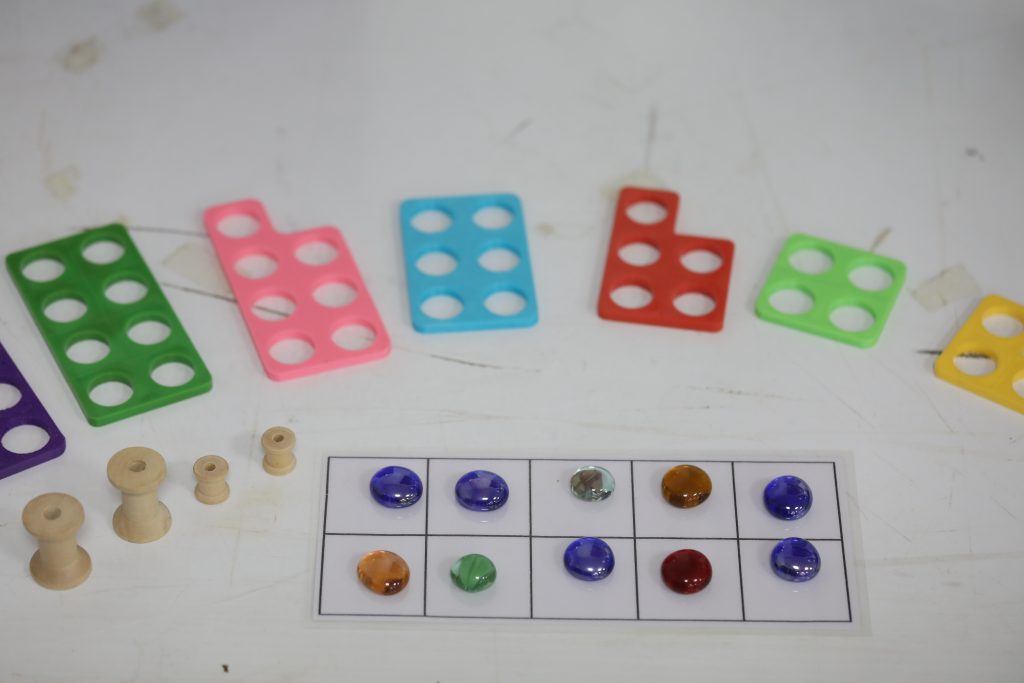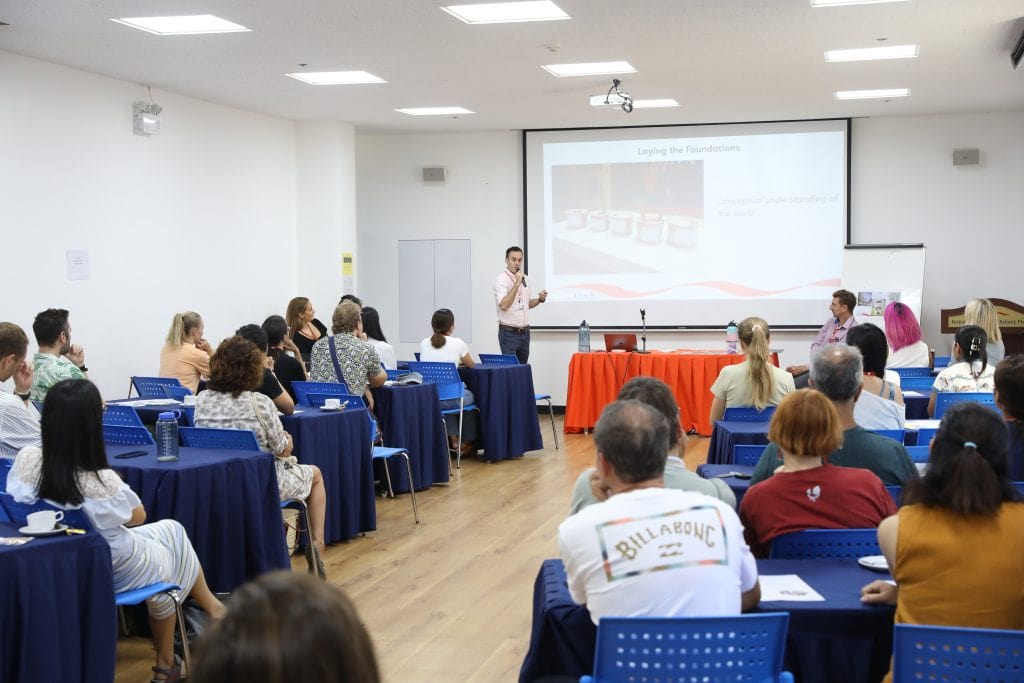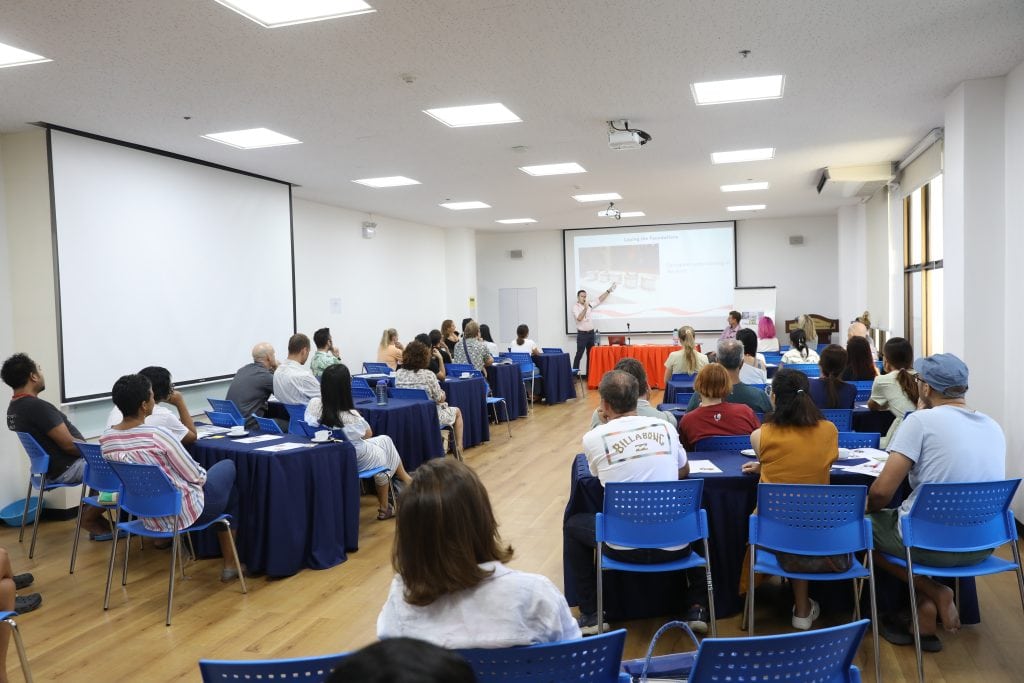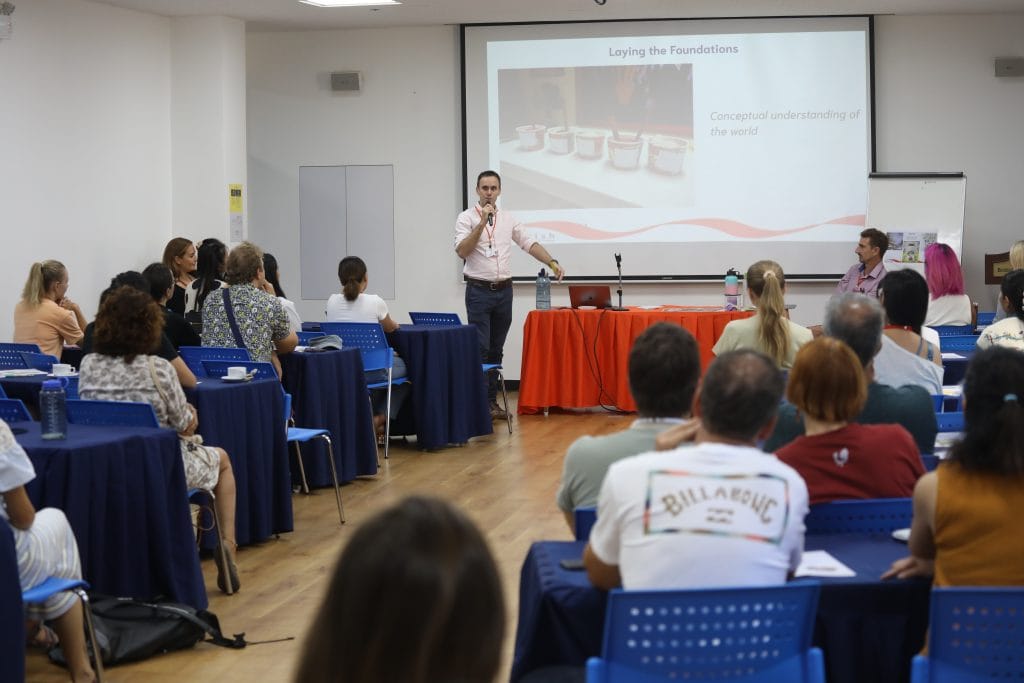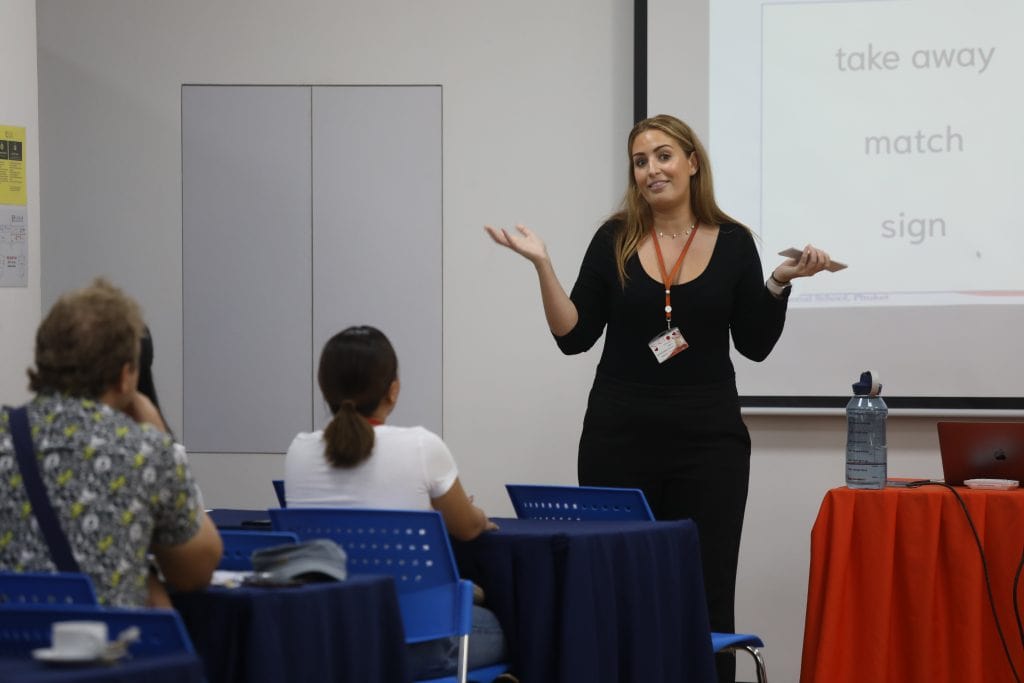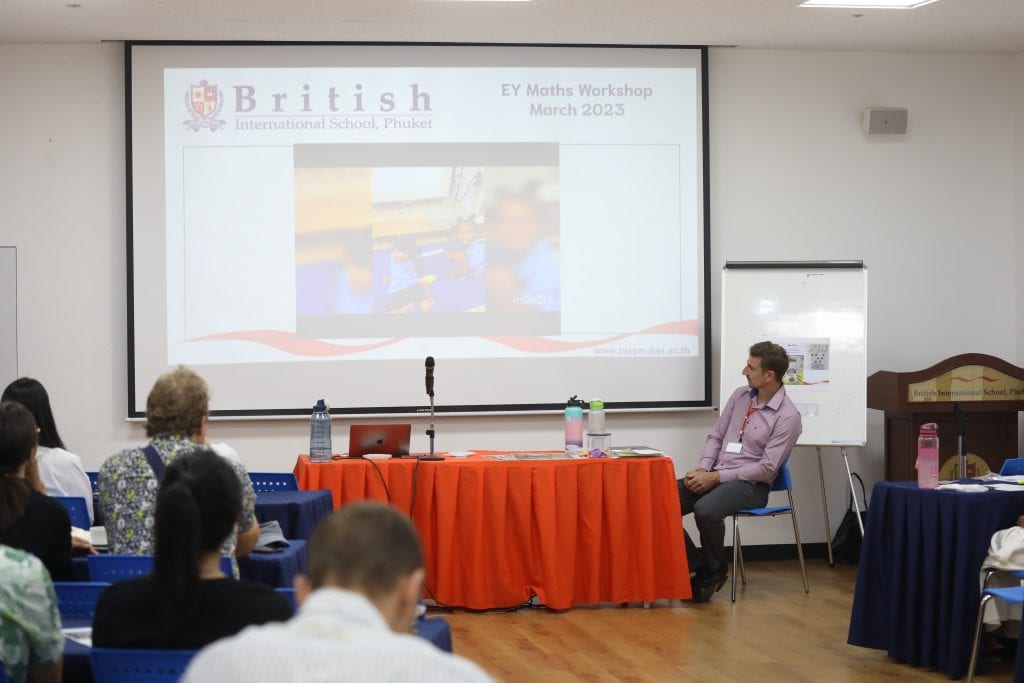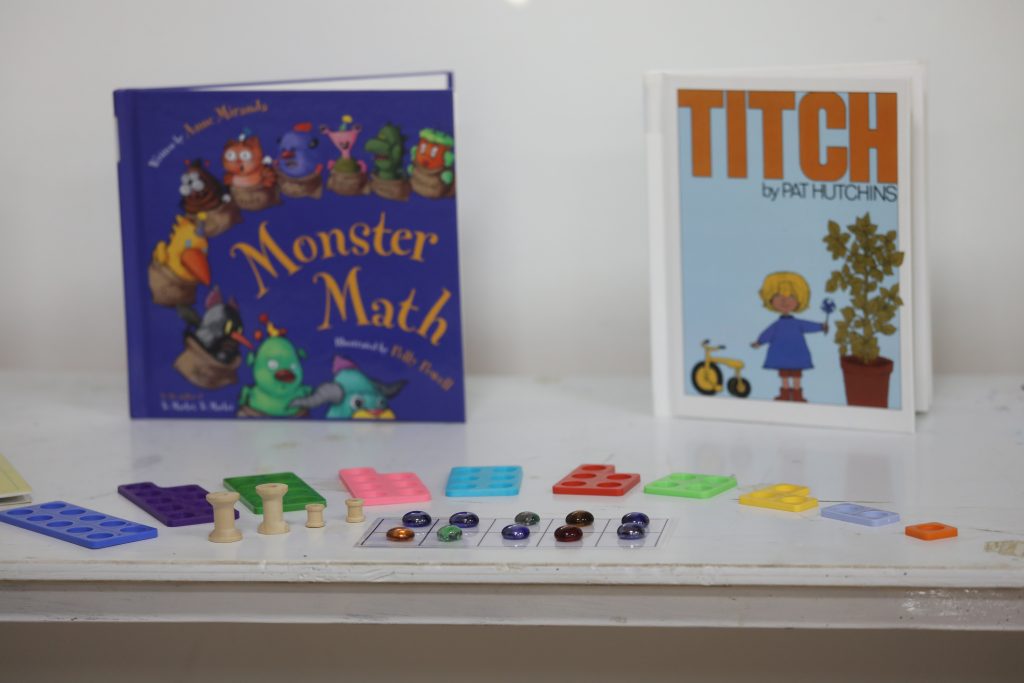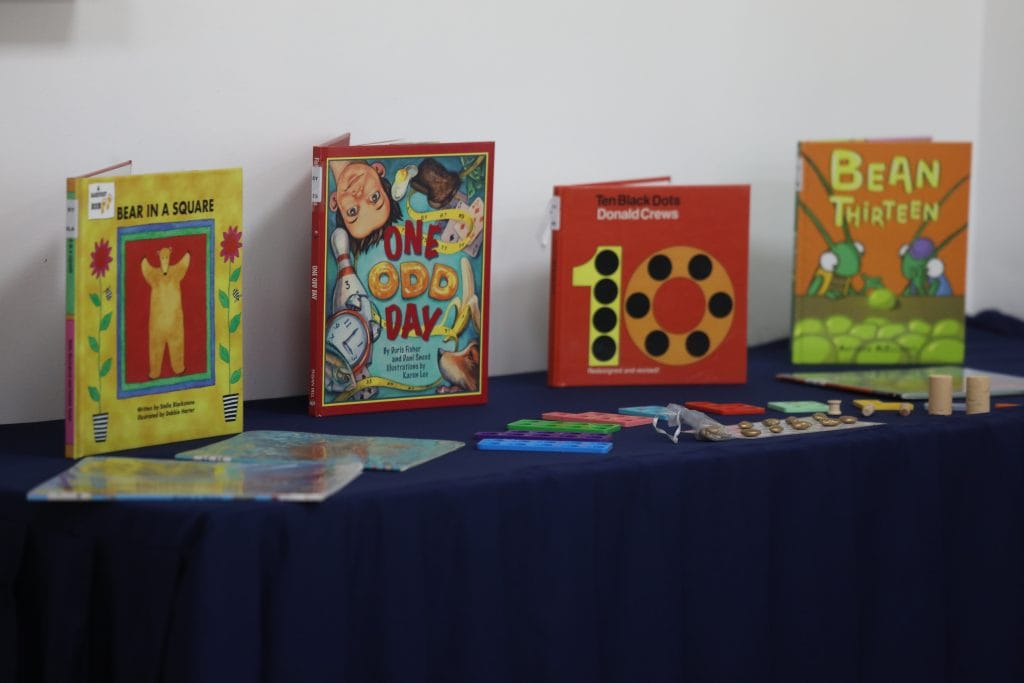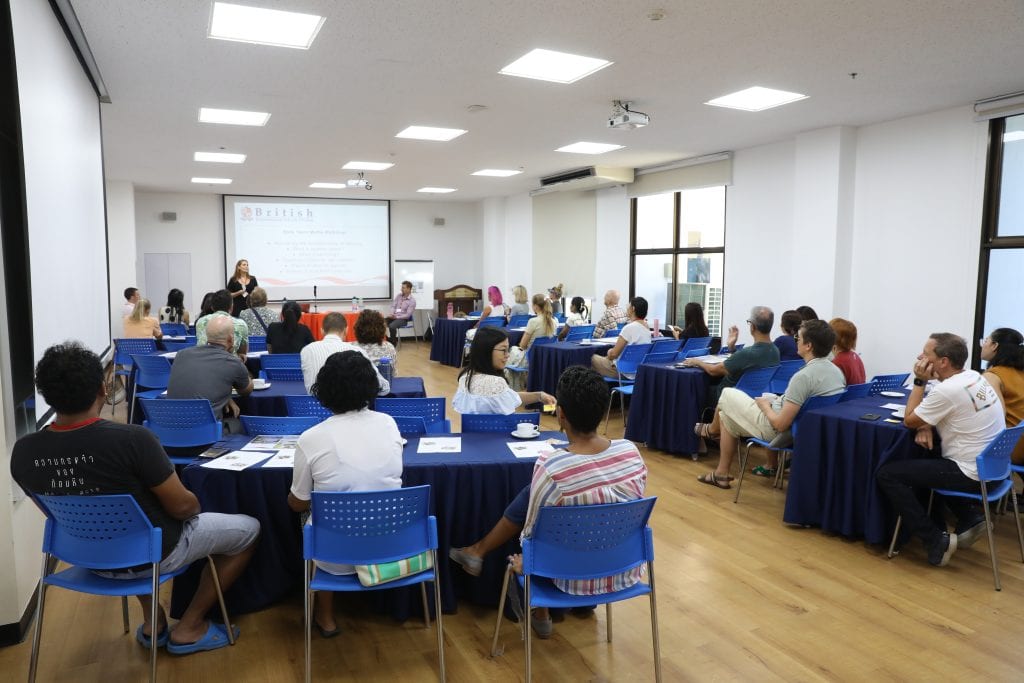| Getting your Trinity Audio player ready... |
Recently, an Early Years Maths Workshop was held at British International School, Phuket (BISP), hosted by Reception and Nursery Leaders Laura Smith and Neil Griffith, as well as Sam Lord, the Primary Maths Lead. The workshop aimed to help parents understand how young children learn maths and the various techniques used in Early Years to teach maths.
The workshop also focused on how teachers “lay the foundations” for all learning in EY by developing children’s conceptual understanding of the world through play, exploration, physical skills and listening and attention skills. Communication and language is also an EYFS prime area which means that it’s one of the important building blocks for all the other areas.
The workshop also highlighted the importance of language in maths. Children can learn many mathematical words through everyday play, but they need help from adults to understand the meanings of these words. Therefore, parents were encouraged to use descriptive and comparative mathematical vocabulary as part of everyday talk, as this would help children understand the concepts better.
The workshop also emphasised the importance of number sense, which is how young children develop a deeper understanding of what numbers mean and how they work. Teachers use various techniques to teach children the principles of counting, including one-to-one correspondence, stable order, cardinality, abstraction, and order relevance. By using these techniques, children can learn to count and understand how numbers work, which is crucial for developing their maths skills.
Another essential topic covered in the workshop was subitising, which is the ability to instantly recall the number of objects or images without needing to count them individually. This is a crucial skill for young children to practise and develop, as it helps them understand and visualise numbers. Educators teach children to see numbers as images. A numeral is so abstract to children but numbers can be seen in lots of different ways. Therefore, it is essential to teach children to see numbers as images. The workshop also discussed making maths real by demonstrating how maths is all around us, and by discussing the opportunities parents have outside of school to help children understand maths better. Non-pressurised cultural experiences make maths fun and help children learn without realising it!
Finally, the workshop covered an overview of maths across the whole Primary School and after Early Years. The White Rose Scheme is used across the primary school, covering the Concrete, Pictorial, and Abstract methods of learning. Mastery was also discussed, which emphasises the importance of children mastering concepts before moving on to new ones.
The Early Years Maths Workshop at BISP provided valuable insights into how young children learn maths and how parents can help their children develop their maths skills. By understanding the various techniques used by teachers, parents can help their children understand maths better, and set them up for success in their future maths education.
